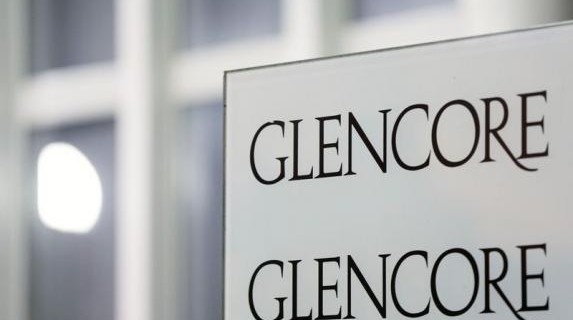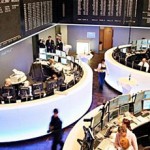Should you fear a ‘Glencore’ moment?

Experts are beginning to warn of the dire financial impact across the mining and metals space if Glencore, one of the world’s largest resource companies, is unable to control its skyrocketing debt load.
Hong Kong-listed shares of the Anglo–Swiss commodity giant crashed 27 percent on Tuesday, on the back of a 29 percent plunge in the company’s London-listed shares in the previous session.
The fall was sparked by a widely-circulated note on Glencore released Monday by Investec that pointed to a debt base well above its peers and a lower-margin asset base. The brokerage also warned of a scenario in which earnings could collapse entirely as Glencore worked purely to repay debt, which would eliminate all shareholder value.
“Glencore is like Lehman Brothers, they have the most sophisticated trading desk when it comes to metals, coal, copper, iron ore. They’re not just a company processing ore from the ground. If it was to unravel, that could have a global impact,” Frank Holmes, CEO and chief investment officer at U.S. Global Investors, told CNBC on Tuesday.
Those debt fears weighed on Asia-Pacific commodity stocks on Tuesday, with Sydney-listed Rio Tinto and BHP Billiton tumbling 5 and 6 percent respectively within the first two hours of trade, while Singapore-listed Noble Group tanked 12 percent.
Glencore could be the name that drags the entire market down because it has an elevated leverage ratio in order to secure high returns, Holmes explained, adding that the firm also has many counterparty transactions, so there are concerns about a domino effect and the leverage of other parties.
A source close to Glencore, who preferred to remain anonymous because of the sensitivity of the situation, told CNBC that comparisons to the defunct Wall Street investment bank Lehman Brothers were “totally incorrect,” adding that the two companies did not have the same business model or leverage.
The source noted that Glencore’s balance sheet already had $10.5 billion of committed available liquidity before it announced its debt reduction plan, as well as $15.3 billion in committed credit facilities.
This month, the firm announced plans to cut its debt pile by $10 billion and protect its rating, including scrapping its dividend, selling assets and raising cash.
Glencore’s current debt-to-equity ratio is 1.12, well above Rio Tinto’s 0.59 and the 0.37 of Chilean copper giant Antofagasta, according to Reuters data for the quarter ending June 2015. Comparisons are not strictly like-for-like, though, because unlike many of its rivals who are focused purely on mining, Glencore also has a massive trading arm.
Concerns about the firm’s balance sheet have pushed up the cost to protect against Glencore’s default using credit default swaps (CDS). It now costs $533,630 a year to protect $10 million of debt for five years, up from $210,520 earlier this year. The corresponding cost for BHP Billiton is $114,680.

“Glencore is a good example of how commodity weakness is affecting credit markets, now this is becoming more of a credit story and that’s where it becomes more concerning,” said Andrew Burkly, managing director and head of institutional portfolio strategy at Oppenheimer Asset Management.
“You’re going to be hearing more stories of companies getting into credit trouble before you can mark the bottom in the commodities market.”
Not everyone believes Glencore’s situation will get as bad as Lehman’s, which collapsed on September 15, 2008.
“Lehman had assets but it wasn’t able to realize those at the time. With Glencore, they have the ability to sell things off, the prices may not be what they want but they do have a chance to reduce their debt if they choose to,” Andrew Sullivan, managing director of sales trading at Haitong International Securities, told CNBC.
Analysts at Citi and Bernstein also defended the firm on Tuesday. “We believe the markets response is overdone,” said Citi, which has a buy call on Glencore.
“There is genuine economic value to be found in both Glencore’s commodity trading business, and its industrial metals & mining business,” said Bernstein, which has an outperform rating on the stock.
Time is of the essence, though.
Evan Lucas, a market strategist at IG, warned that Glencore’s credit rating may be downgraded to junk status and its asset values quartered or halved by the time deals to offload assets are finalized, given the speed at which the CDS market moves.
What will spark a meltdown?
The Federal Reserve‘s much-anticipated interest rate hike may be the ultimate trigger to spark a broad credit event, Holmes said.
Sullivan also hinted that higher U.S. interest rates could eventually force unhealthy businesses to go bust. In every industry, there are companies that shouldn’t be operating but because interest rates are zero, they can get access to money that keeps them afloat, he explained.
“Cheap money has fueled companies for so many years, so to an extent we’ve been living in cuckoo land. But all this money has not had the desired effect. At some point, we have to let companies go bust so the good companies can actually do well.”
Source: cnbc – Should you fear a ‘Glencore’ moment?




























